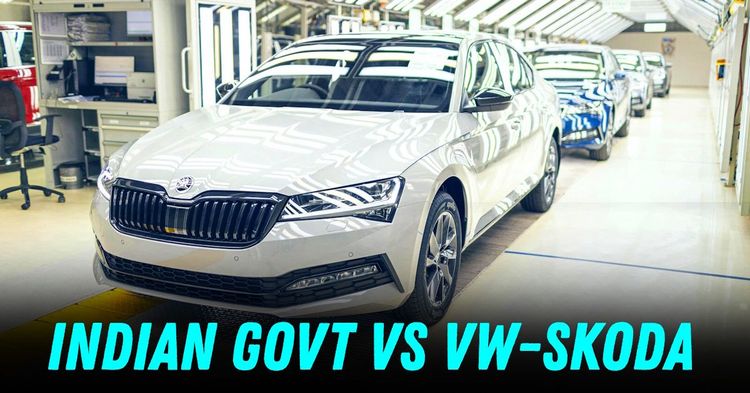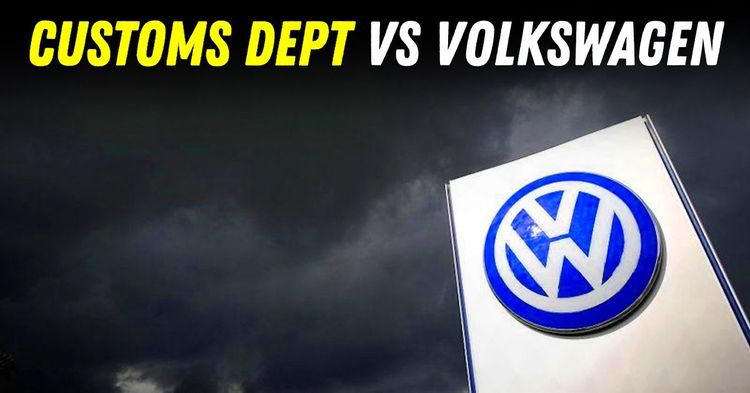Volkswagen India Hires External Experts to Fix the 20,000 Crore-plus Import Duty Mess


Volkswagen Group is overhauling its India operations as it faces the country’s biggest-ever import duty demand. The German carmaker is looking at external experts to guide its restructuring after being hit with a tax notice of $1.4 billion (about ₹10,000 crore). Along with this, the company is battling leadership changes, falling market share, and pressure to catch up in electric vehicles.

As per ETAuto, An internal memo from Skoda Auto Volkswagen India head Piyush Arora, sent on September 8, confirmed that external consultants are being brought in for a full review of processes.
The aim is to get an independent view and find solutions to ongoing issues. This step indicates the seriousness of the problems the group is facing in India, where it has struggled to expand despite being present for more than two decades.
The restructuring has been accompanied by a string of top-level exits. Around ten senior executives have left in recent weeks, including finance head Nalin Jain, HR head Sarma Chillara, external affairs chief Deepti Singh, cost control chief Hemant Malpani, and quality head Shriniwas Chakravarthy. Though the company says these are regular HR developments, the timing points to deeper turbulence inside the organisation.

Volkswagen and Skoda together hold just 2 percent of India’s 4 million annual car sales. This share is smaller than that of newer entrants like Kia and well below long-time players such as Toyota. Even though Volkswagen’s India revenues nearly tripled in the last five years from $766 million to $2.15 billion, profits dropped sharply from $85 million to only $10.6 million. The mismatch between rising sales value and shrinking profit highlights operational inefficiencies and weak pricing power in a competitive market.

The most pressing issue remains the import duty case. Authorities allege that Volkswagen misclassified imported Audi, VW, and Skoda cars to pay lower duties.
If found guilty, the group’s total liability, including penalties and interest, could climb to $2.8 billion (over Rs. 22,000 crore), making it one of the largest tax disputes in automotive history. This dispute not only puts financial pressure on the company but also distracts management from long-term planning.

Another challenge is the industry-wide shift toward electric vehicles. From 2027, fuel efficiency regulations will force carmakers to bring in EVs. While rivals are already building EV portfolios, Volkswagen and Skoda have no electric car on sale in India today.
The group has announced plans to adapt its Chinese EV technology for India and signed a component supply deal with Mahindra & Mahindra, which has now been called off. Without clear launch timelines, it risks losing further ground.
India has become more important for the Volkswagen Group after its reduced presence in China and exit from Russia. This makes success in India critical to its bigger global strategy.
Yet the market is especially tough for European carmakers, who face low-cost competitors and strong dealer networks from Japanese and Korean brands. Volkswagen’s global premium positioning does not easily translate into volume sales in a market where price-sensitive customers dominate.

The final recommendations from the consultants could determine Volkswagen’s future strategy. Potential changes may include localising more parts, adjusting the product range for Indian buyers, and even tie-ups with domestic carmakers. The company’s current models are seen as technically advanced, but they may not align with mass-market expectations in terms of pricing and features.
With the tax liabilities looming large, weak market share, and urgent need to enter EVs, the restructuring comes at a make-or-break moment for Volkswagen in India. Whether the external experts can help the group reset its strategy will likely decide if Volkswagen can move beyond its current struggles or remain a marginal player in a market of growing global importance.